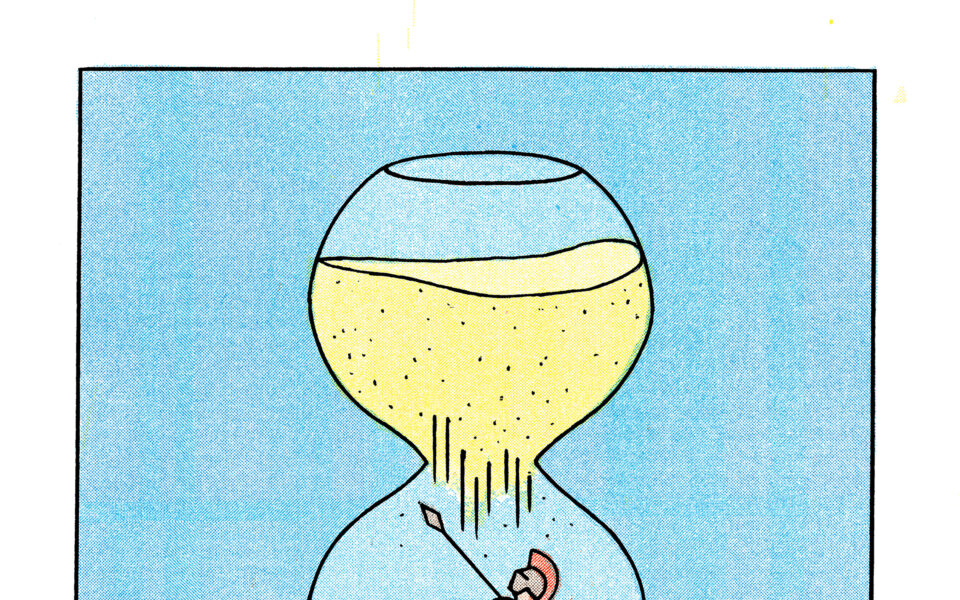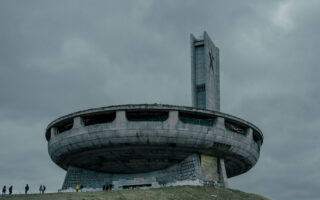In defense of nostalgia

Columbia University professor Mark Lilla, a perspicacious liberal critic of the contemporary right and left, has an essay in the latest issue of Liberties Journal analyzing the appeal and perils of nostalgia. The appeal is universal, he argues: Like late-middle-aged adults flipping through vacation pictures that “remind us, or delude us into thinking, that family relations were once simpler and happier than they are now,” almost every society finds itself mythologizing and romanticizing its own origin or past. But the peril is inherent in the romance: No less than the utopian futurist, the backward-looking romantic is tempted to violently wrench the present out of joint, to sacrifice lives and treasure on the altar of a “lost wholeness,” a fantasy of never-was.
Lilla illustrates this peril with a long discussion of the role that nostalgia and imagined pasts played in the rise and shape and savagery of National Socialism in Germany. The Hitlerian politics of nostalgia wasn’t confined to fantasies of Teutonic purity, he notes; the Nazis laid claim to the heritage of Greece as well, with Adolf Hitler himself “drawing a parallel between the Spartan practice of abandoning handicapped children in the wild” and his regime’s “industrialized-scale eugenic cleansing.” And that kind of invocation, the conscious linkage of the ancient world to the modern present, was itself an imitation of the spirit of Augustan-age Rome, whose cultural project, embodied most of all by Virgil, was to “redirect nostalgia for the past toward the future and raise the prospect of leapfrogging over the present to arrive at a utopian world to come.”
In this sense, Lilla argues, “the ideologies of modern fascism are all heirs to the Aeneid.”
I think this is true, but the nature of its truth suggests a necessary counterpoint to Lilla’s critique – or maybe an extension and complication of his argument, since I doubt he would fully rule out a constructive role for nostalgia in human civilization. Because Virgil’s “Aeneid” is, after all, one of the central artistic works of Western history, and the larger Augustan Age is likewise well remembered for good reason. So the influence of both Virgil and his era runs down through time through countless channels: Renaissance art, 18th-century poetry, early modern political theory, neoclassical architecture and more. The fascists were heirs to Augustan Rome not because of an affinity between their worldviews, but because Augustan Rome had a lot of would-be heirs.
And it had all those heirs and imitators because the phenomenon Lilla describes, the redirection of nostalgia for past greatness toward a vision of the future, is an essential part of human civilization-building. It is not that you have the steady march of progress on the one hand and on the other, people throwing themselves backward into fantasies of lost arcadias as some kind of escapist alternative. The relationship is much more complicated. What we think of as moral and cultural progress is often dependent on backward glances, rediscoveries and recoveries that enable escapes from the cul-de-sac of presentism, the repetitions of decadence. Or alternatively, nostalgic rediscoveries are often necessary to humanize and tame the excesses of progress, to maintain continuities that might otherwise be shattered by social or technological shifts.
The nostalgia of Victorian pastoralists like John Ruskin, whom Lilla refers to, would be an example of the second category – with Gothic-revival architecture and the Arts and Crafts movement as necessary humanizing forces amid the turmoil of the new industrial society.
For an example of the first category, you could look at the Italian Renaissance, the founding of the State of Israel or the Meiji Restoration in Japan. Or for that matter, you could just look around: The American republic, our oh-so-modern and liberal home, was itself founded upon a lot of the backward-looking impulses (toward ancient Greece, toward the Hebrew Bible and the Anglo-Saxons) that Lilla identifies with 20th-century fascism. It was a new order for the ages, but what was the Freemasonry, whose symbols decorate our legal tender, if not an example of invented tradition, no less than any Nazi myth of Aryan antiquity?
The point being, what was fundamentally wrong with the Nazis was not that they were interested in the restoration of imagined glories; it’s that they were moral monsters who included mass murder among the glories of the past. Or to take Lilla’s formulation about nostalgists “leapfrogging over the present to arrive at a utopian world to come,” the problem there is the utopianism, the belief in a perfect society that necessarily requires the elimination of anything and anyone that doesn’t fit. It’s not the idea of going backward in the hopes of leapfrogging ahead, of trying to find somewhere new and different via some kind of connection with antiquity.
That idea seems more neutral than lamentable, with its moral valence depending on what you are trying to revive or reinvent (a renaissance in Nahuatl literature, good; a revival of Mesoamerican human sacrifice, bad). But even the word “neutral” makes creative nostalgia sound like a take-it-or-leave-it kind of thing; better to say that it’s an inextricable component of human culture-making that, like any such aspect, can be turned to wicked ends but can’t be purged or exorcised, except at a great cost to any future creativity or progress.
Which brings me around to our own era. Lilla concludes his essay with a warning that “political nostalgia” is now “filling the vacuum left by the abandonment of progressive ideologies like socialism and democratic liberalism” – with implicit references to Western populism and explicit ones to India’s Hindutva movement and the civilizational ambitions of Moscow and Beijing.
But one can go back and read an exemplary Lilla essay from nine years ago, before the populist surge, when he was writing on the emptiness and willful historical ignorance of a libertarian-inflected neoliberalism at the end of history, and gain a slightly different perspective on our situation. Here’s some of what Lilla wrote then:
“Never since the end of World War II, and perhaps since the Russian Revolution, has political thinking in the West been so shallow and clueless. …
“Try to convey the grand drama of political and intellectual life from 1789 to 1989 to young students today – American, European, even Chinese students – and you are left feeling like a blind poet singing of lost Atlantis. Fascism for them is “radical evil,” hence incomprehensible; how it could develop and why it appealed to millions remains a mystery. Communism, while of course it was for “many good things,” makes little sense either, especially the faith that people invested in the Soviet Union. …
“… ours is a libertarian age by default: whatever ideas or beliefs or feelings muted the demand for individual autonomy in the past have atrophied. …
“Our libertarianism … is supremely dogmatic, and like every dogma it sanctions ignorance about the world, and therefore blinds adherents to its effects in that world. It begins with basic liberal principles – the sanctity of the individual, the priority of freedom, distrust of public authority, tolerance – and advances no further. It has no taste for reality, no curiosity about how we got here or where we are going.”
If this is really where we’ve ended up, then maybe it’s not quite right to say that liberal and democratic ideals have been rashly thrown over for the sake of a dangerous nostalgia. Maybe the circumstances Lilla described in 2014 made some kind of retrospective yearning or questing more or less inevitable – as a natural response to a landscape where progress seemed to have ended in boredom, repetition, intellectual sterility, liberal democracy as a dogma rather than a practice, all under the stewardship of what Lilla, then, called a leadership class of “self-satisfied abstainers removed from history.”
He would draw a distinction, I suspect, between the neoliberal vapidity he described in that essay and the more robust form of democratic liberalism he posits as an alternative to nationalist nostalgia now. But maybe robustness within democratic liberalism is dependent, as the more conservative kind of liberal has long argued, on a pre-liberal inheritance for both stability and vigor, and when that inheritance is spent, liberalism alone does not suffice for its rebuilding. In which case, the quest for a usable past, the invention and reinvention of tradition, is essential to any forward-looking movement, left-wing as well as right-wing – because as much as history is subject to mythologization and falsification, it’s still more accessible than the unknown future, still the most powerful cultural material we have.
Like Lilla, I’m dissatisfied with the kinds of reinvented tradition on offer at the moment – a category that encompasses certain forms of left-wing antiquarianism, like the hunt for exemplars of Indigenous power in the colonial past, as well as the nationalist romances of the right.
But these efforts should be critiqued on specific moral or intellectual grounds, not dismissed on principle. Their appeal can’t be answered by simply telling people not to be nostalgic or warning them against the desire for regeneration. Because when progress leads to decadence, there is no way forward that does not go some distance or some direction back.
This article originally appeared in The New York Times.






